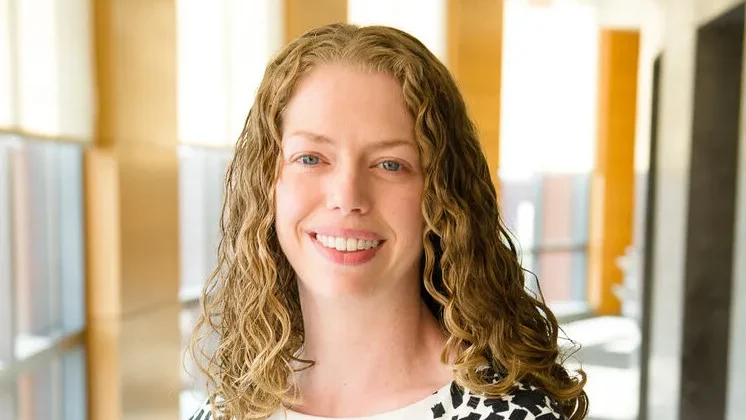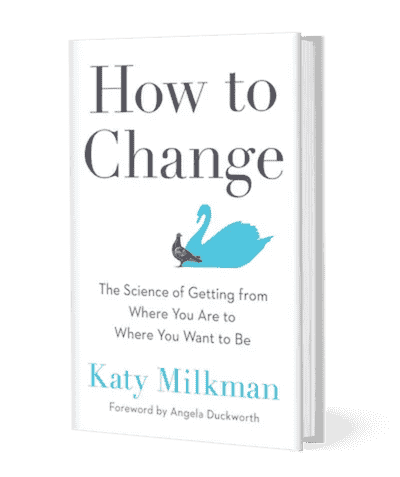Change Agent

If you’ve heard of the sunk cost fallacy, confirmation bias, or the availability heuristic, you know something about the science of decision-making, otherwise known as behavioral economics.
Since 2018, Pacific Content has produced Choiceology, an original podcast from Charles Schwab. It’s a show about the psychology and economics behind the choices we make. Since the second season, it has been hosted by a renowned behavioral scientist, Wharton professor, and all-around fantastic person, Dr. Katy Milkman.
Behavioral economics can be pretty weedy stuff, but through a combination of dramatic storytelling and Katy’s knack for distilling complex concepts into relatable examples, the podcast has gained a devoted and growing following. Past guests include Nobel laureates, astronauts, Olympic gold medalists, mountaineers, a lumberjack, a rock drummer, and even a bridesmaid-for-hire. The show has been downloaded more than 3 million times since it launched.

On May 4th, Portfolio Penguin published Katy’s first book, How To Change: The Science of Getting from Where You Are to Where You Want to Be. To celebrate the release of the book, we thought it might be fun to flip the script and interview Katy about how some of the findings from her research can help you make better choices in life and work.
Here’s our conversation, lightly edited for clarity.
Andy Sheppard: What surprised you the most about becoming a podcast host?
Katy Milkman: How easy you made it! That’s probably not the answer you want for your blog. What surprised me the most, honestly, is that it’s more fun than I thought it would be. I really enjoy the interviewing part, which is not a thing that an academic normally does in their day-to-day. We listen to academic seminars and if you get grumpy and you think something’s wrong you raise your hand and you interrogate the presenter. It’s just a different kind of conversation than I usually have. I didn’t anticipate how much I would love the dialogue and how much I would learn from it.
AS: What are the challenges of communicating some of these concepts from behavioral science to a general audience?
KM: That’s an interesting question. One of the challenges, I think, is that there is this desire for the simple answer and the quick fix. Everybody wants a short answer. “Oh, just do this and magically it will disappear.” And, of course, biases are never that easy and human behavior is never that simple.
I think one of the hardest things is to make sure we’re doing the science justice and giving accurate and responsible information as opposed to the cute packaged garbage. I would say one of the hardest things about it is giving that complexity without losing impact.
AS: Agreed. Some nuance will always be lost when you’re compressing a complex concept into a 30-minute episode, so we always want listeners to know that there’s more out there to learn and discover about any given topic.
I’m curious if there’s anything about podcasting that has informed your other work, specifically your new book?
KM: Yeah. The storytelling! I do feel like I had no idea how to tell a story. I mean, we learn to tell stories when we’re young, and sometimes they have a middle and an end, but I learned about using points of tension to keep a listener engaged. And I do think having that drama and a narrative arc gives a person a reason to keep going in a book or in a podcast. And that is critical to communicating anything whether it’s science or what happened to you at the supermarket.
AS: Your book, How To Change: The Science of Getting from Where You Are to Where You Want to Be has just been published. First of all, congratulations! Could you give readers the elevator pitch for the book?
KM: How To Change is really my attempt to summarize the key findings of my life’s work studying the science of behavior change so that it could be useful to a reader who wants to figure out how to make a change in their own life or help other people change for the better.
The thesis of my book is that there isn’t a one-size-fits-all solution. That’s the wrong approach. To give effective advice to help people actually achieve their goals, there needs to be an understanding of what they’re up against—just like a doctor who is trying to diagnose why you have headaches isn’t going to give you the same prescription if it’s because you have a brain tumor as if it’s because you’re not getting enough sleep. So, if you really find it just dreadfully miserable to do the thing you need to do to change it’s a different prescription than if you keep forgetting to do it or you don’t believe you can do it. The book helps you identify the obstacle, and then gives you the science that suits it.
AS: I’m worried that my next question falls into that quick fix problem you mentioned earlier, but I’m going to ask it anyway. Many podcasters and media producers and people, in general, are struggling with heavy workloads and tight deadlines, and poor work-life balance. Do you have a key piece of advice for managing the challenges of a fast-paced work environment and the overall busyness of life?
KM: Actually, I think I have a pretty universally helpful one here because it will be personalized by the nature of the challenge. There’s a section of my book where I write about the power of copy and paste—or plagiarizing. We generally think of plagiarizing as a bad thing. But we should plagiarize more when it comes to what works to help us achieve our goals. One thing that we seem to do too little of is look up from the chaos engulfing us and tap our friend on the shoulder — maybe the digital shoulder these days — and say “You seem to have it all together. What are you doing that’s working?”
Being more deliberate about emulating other people who have figured out systems is a way we can be more effective. So that would be a piece of advice for busy podcasters: go find another busy podcaster and figure out what they’re doing that’s working and then copy as many people as possible until you are the master of all hacks.
AS: So you don’t have to reinvent the wheel every time you encounter a problem.
KM: Right.
AS: Okay, final question for you. Goals are a big part of your work. Now that your book is finished and out — a big goal achieved! — what’s a personal goal that you’re currently working towards?
KM: Oh my, which one to pick is the real challenge! I’ll tell you about one that I’m not working on at this particular moment, but it will be my number one goal the minute after the next two weeks are over. The last six months of getting the book ready have not left me any time for reflection. I do have one hour each week currently scheduled with one of our frequent guests on Choiceology, Sendhil Mullainathan, who is one of the best thinkers on the planet, along with one of my doctoral students, and the label on that hour meeting is ideating.
We just talk about whatever’s on our minds. We let it go wherever it’s going to go. And I don’t have nearly enough of that on my calendar. So, my number one goal is to make real-time and space for idea generation as opposed to just execution.
Katy Milkman is the James G. Dinan Professor at The Wharton School of the University of Pennsylvania and the host of the Charles Schwab podcast, Choiceology.
Sign up for the Pacific Content Newsletter: audio strategy, analysis, and insight in your inbox.
